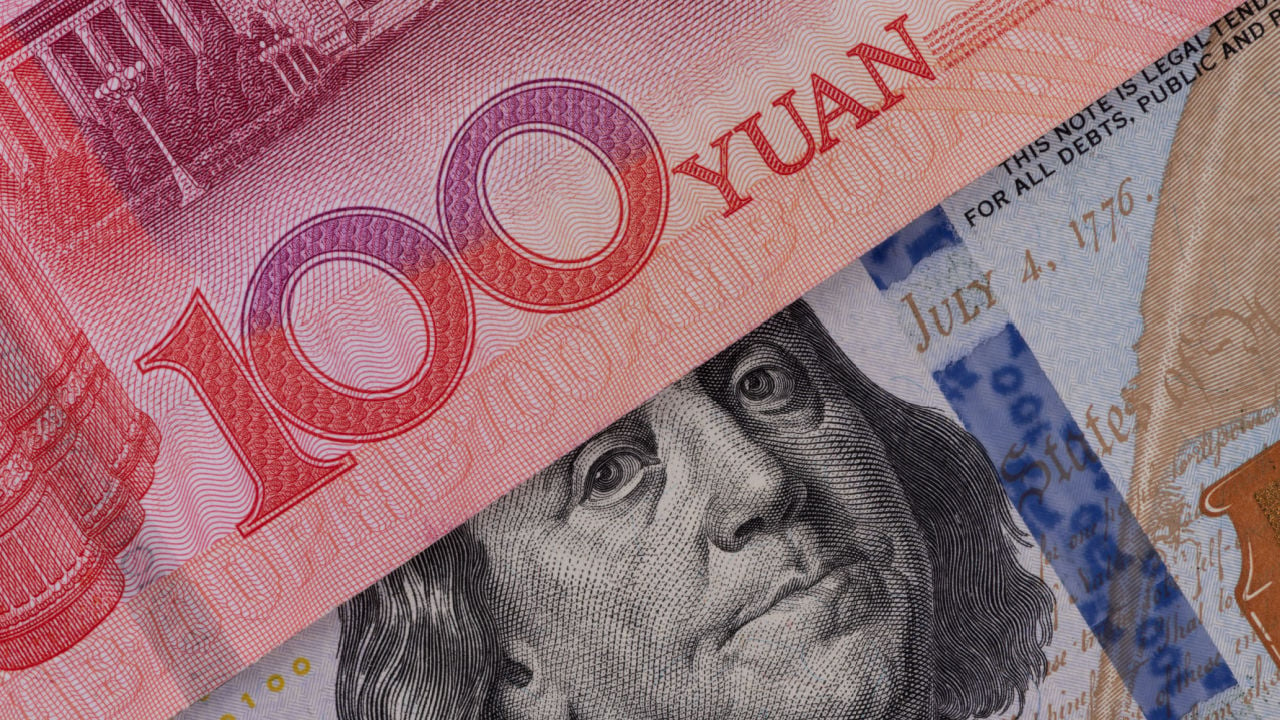The Chinese yuan is now China’s most used currency for cross-border settlements. According to official data from the State Administration of Foreign Exchange, the Chinese yuan rose to be the most-used currency in March over the U.S. dollar, in a push from the Beijing government to internationalize its currency for payments.
Chinese Yuan Used to Settle Most of China’s International Payments in March
Beijing is now settling most of its international trade operations using the Chinese yuan. According to official numbers from the State Administration of Foreign Exchange, a Chinese national institution in charge of managing China’s international reserve, the payments settled using the Chinese yuan overtook those made with U.S. dollars in March, being used in 48.4% of all settlements.
The Chinese yuan was used to settle $549.9 billion in payments, a record number, rising from $434.5 billion in February. The usage of the U.S. dollar for these payments fell from 48.6% to 46.7% during the same period.
China has been increasing reliance on its currency due to recent geopolitical challenges that have been used as a rationale for the U.S. to apply sanctions to Russia, affecting also Chinese companies accused of serving as proxies for the Russian government and its institutions.
Yuan Usage Has Grown
However, internationally, the usage of the Chinese yuan for settlements is minuscule when compared to the volumes settled in U.S. dollars, even with the implementation of sanctions. During March, the usage of the Chinese Yuan in global international payments rose to 4.5%, while the U.S. dollar accounted for 83.71% of all volume settled, according to data from SWIFT, a global banking payments system.
However, this marks an increase compared to the usage numbers of December, when the Chinese renminbi only accounted for 2.15% of all global payments, according to SWIFT’s renminbi tracker. This means that the yuan’s usage has more than doubled during Q1 2023.
This, and other recent trade agreements that have led countries like Russia and Brazil to settle their bilateral payments with China using national currencies or the Chinese yuan, have alarmed some analysts regarding the possible rise of a “bipolar” economic world.
Economist Nouriel Roubini recently stated that rivals of the U.S. would probably group around the yuan to propose it as an alternative to the U.S. dollar. In the same way, billionaire investor Ray Dalio noted the importance of the U.S. dollar in international trade is fading, thanks to the sanctions that the country has imposed on other countries.
What do you think about the growth of the usage of the Chinese yuan? Tell us in the comment section below.
![]()
Sergio Goschenko
Image Credits: Shutterstock, Pixabay, Wiki Commons
Disclaimer: This article is for informational purposes only. It is not a direct offer or solicitation of an offer to buy or sell, or a recommendation or endorsement of any products, services, or companies. Bitcoin.com does not provide investment, tax, legal, or accounting advice. Neither the company nor the author is responsible, directly or indirectly, for any damage or loss caused or alleged to be caused by or in connection with the use of or reliance on any content, goods or services mentioned in this article.



